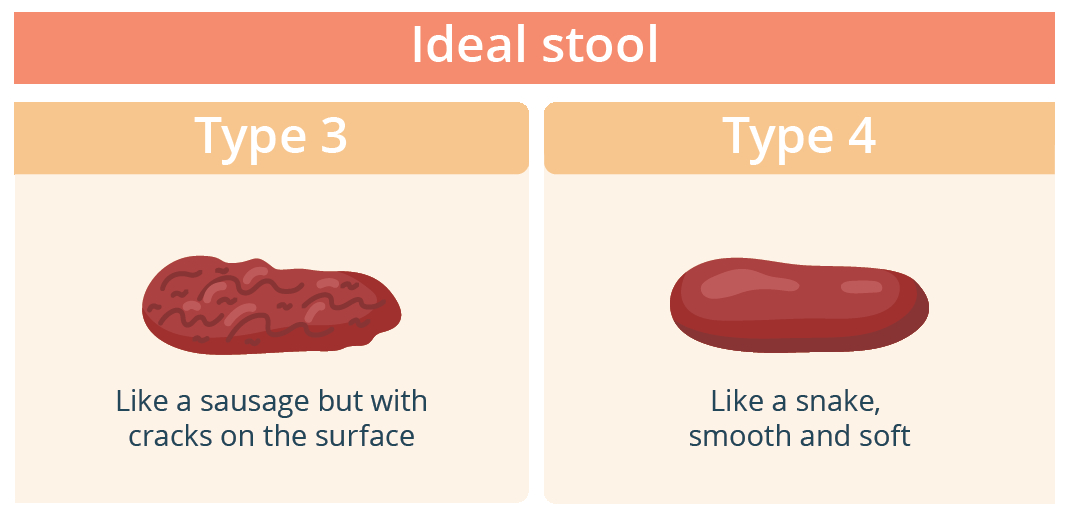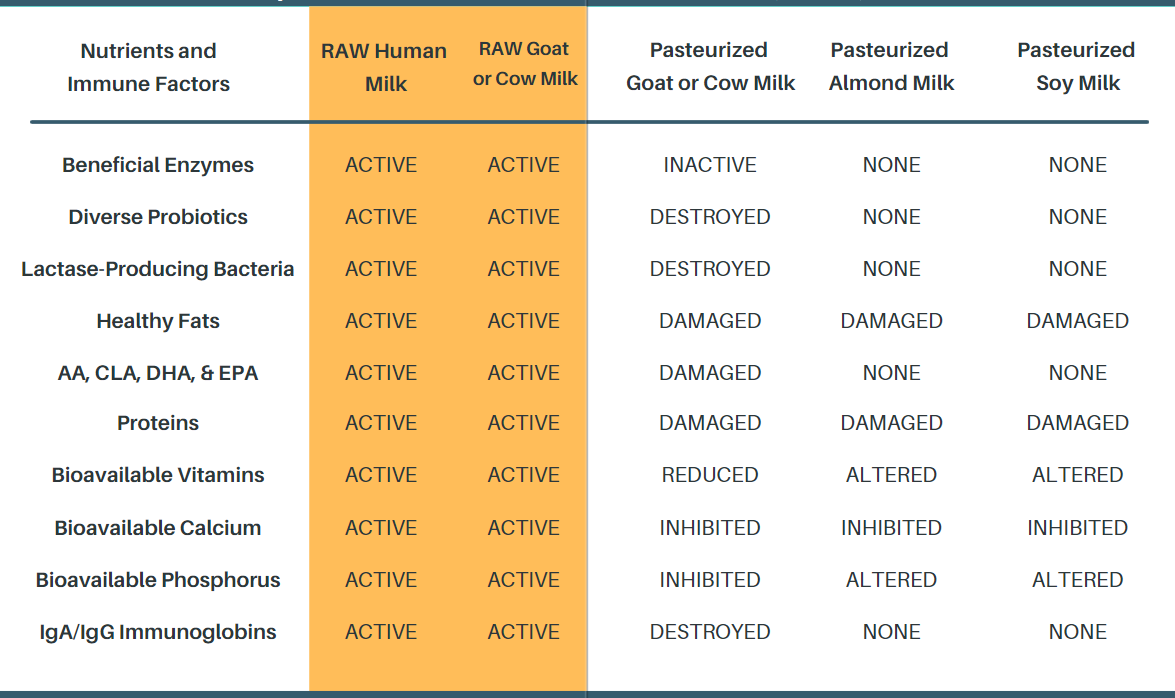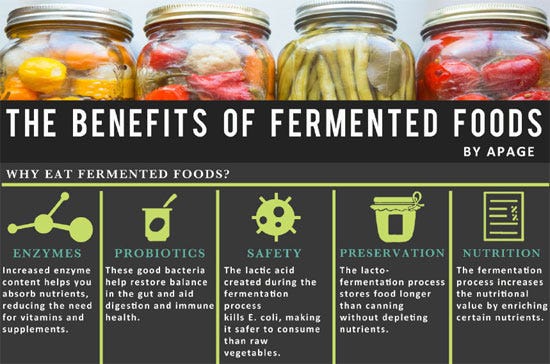Biohacking Your Nutrition
Life Changing Habits Series
Biohacking, a term encompassing an array of techniques aimed at optimizing bodily performance and potentially extending one's lifespan, is gaining momentum. While some biohacking methods may appear extreme, others, such as meditation and intermittent fasting, have been widely adopted and extensively researched to prove their efficacy.
Food is more than just sustenance; it's a potent form of medicine that can either heal or harm. Think of it as the ultimate biohack, a secret code to unlock your body's full potential. By strategically choosing what & when you eat, you can supercharge your physical and mental performance, extend your lifespan, improve your mood, and fine-tune your well-being. Nutrition isn't just about staying alive; it's about thriving.
In my quest for an optimal diet, I've immersed myself in extensive research, consulted with experts, read countless books, and conducted experiments involving a diverse range of foods and dietary plans. I've explored the Carnivore Diet, Paleo, Mediterranean Diet, and Animal-based diets. I have tried to eat more organic fruits and vegetables. I've ventured into the realm of various fasting regimens, encompassing both shorter and extended periods. I even analyzed my gut microbiome and closely monitored my mood, energy, and sleep when eating specific diets.
What's my goal? I crave high energy, strength, vitality, and immunity from illness. On my checklist: mood stability, restorative sleep, laser-sharp focus, crystal-clear mental clarity, and passion for life. I'm convinced that nutrient gaps, metabolic disorders, and environmental toxin exposure play a pivotal role in mental health. Regrettably, most medical experts, psychologists, and therapists regularly ignore these vital factors and rarely intervene in reshaping these critical lifestyle habits. It's time for a revolutionary change.
What I've discovered for myself, I believe, can ultimately benefit others. Nonetheless, the vast biodiversity that exists leads me to conclude that there might not be a universally optimal human diet. Instead, our unique genetic makeup reflects centuries of adaptation. I have faith in our bodies' capacity to adapt to the natural resources available, which implies that what's optimal for one individual may not be the same for another. This is my key takeaway, but ultimately, each person must embark on a similar journey to determine the ideal foods for themselves.
One undeniable fact: the relentless march of modern industrial food production, with its proliferation of packaged, processed, and chemically loaded fare, is wreaking havoc on our health. Processed foods, industrial seed oils, and the hidden chemicals in many products pose a clear and present danger to our well-being. Don't be fooled by what's often marketed as 'plant-based'; it's often nothing more than chemically-laced junk mass-produced in a factory. This article doesn't aim to state the obvious; rather, it shares my insights derived from research and personal experimentation. In the end, my insights have guided me to place a high priority on gut health, nutrient bioavailability, and metabolic flexibility.
Gut Health
The gut microbiome, often referred to as our "second brain," plays a crucial role in our overall health and well-being. This complex ecosystem of trillions of microorganisms inhabiting our digestive tract influences everything from our immune system to our mental health. Maintaining a balanced and diverse gut microbiome is essential for efficient digestion, nutrient absorption, and a robust immune response. A harmonious gut microbiome can also contribute to improved mental clarity and emotional well-being.
For optimum gut health, focus on nurturing these beneficial microbes by incorporating a wide variety of nutrient-rich foods into your diet, while minimizing processed and sugary foods, alcohol, and managing stress that can upset the delicate balance. Including fermented foods in your meals can also bolster a healthy gut, enhancing vitality and resilience throughout your body.
When you embark on a quest to enhance your gut health, you'll find countless articles that tout the merits of a plant-based diet. But from my personal experience and extensive research, I've come to challenge this prevailing notion. It's crucial to recognize that the diverse species of bacteria residing in our gut possess remarkable adaptability, capable of digesting both plant and animal-based foods. Your dietary choices exert a profound influence on the intricate balance of these gut bacteria.
Take, for instance, those who adhere to a carnivore diet, reminiscent of our predatory counterparts in the animal kingdom. Their nutritional needs don't align with the broad spectrum of gut bacteria required to break down plant-based starches and indigestible sugars, as they simply don't consume such substances. In contrast, I place a premium on dietary diversity. Consequently, my choices are meticulously tailored to optimize my gut health, reflecting my belief in the value of embracing a wide array of foods to nourish my body's intricate microbiome.
I've discovered that a diet abundant in animal protein and rich in saturated fats not only provides a wide spectrum of essential nutrients but also actively nurtures a thriving gut ecosystem. This dietary approach offers bioavailable nutrients and sustains a profound feeling of fullness that lasts.
Signs of Poor Gut Health
Recognizing poor gut health can involve various signs and symptoms, including:
Digestive Issues: Frequent bloating, gas, diarrhea, or constipation could be indicators of an unhealthy gut. One study review suggested that imbalances in the gut bacteria, called dysbiosis, can play a role in the development of IBS for some people. A healthy gut is usually functioning properly when you have a bowel movement one to two times daily that is well-formed and easy to pass.
Food Intolerances: If you experience discomfort or digestive problems after consuming certain foods, it may suggest an issue with your gut.
Unintended Weight Changes: Your microbiome may also impact the production of hunger hormones, such as ghrelin, which control if you feel hungry or full. An unhealthy gut microbiome can increase inflammatory markers, which may lead to weight gain and metabolic disease
Fatigue and Sleep Disturbances
Skin Conditions: Conditions like eczema or acne can be associated with gut issues.
Frequent Infections: A weakened immune system can result from an imbalanced gut, leading to recurrent infections.
Mood Fluctuations: An unhealthy gut may contribute to mood swings, anxiety, or even depression.
Autoimmune Disorders
Chronic Inflammation
I do not eat a lot of vegetables. Just like all lifeforms, vegetables have an innate drive to survive. Lacking feet, fists, or fangs, they have evolved an arsenal of chemical defenses known as plant toxins, phytotoxins, and antinutrients. The first place we experience the impact of these plant defense mechanisms is within our gastrointestinal system. Bottom line, when I eat too many vegetables I experience gut irritation, fatigue and bowel changes.
So I eat a small amount of mostly fermented vegetables in order to nurture gut health. Although the majority of the plants we consume are not immediately poisonous, prolonged exposure to the irritating and toxic substances found in plants can lead to gut inflammation, autoimmune disorders, and intestinal permeability, commonly referred to as "leaky gut."
As I alluded to earlier, the remarkable biodiversity in the world makes it increasingly clear that a one-size-fits-all, universally optimal human diet might be a myth. Our genetic makeup is a testament to centuries of adaptation, each unique to our individual heritage. While some individuals may thrive on a diet rich in vegetables, I won't rush to assume that a diet predominantly consisting of fruits and vegetables holds the universal key to optimal health. The journey to understanding the best diet for each of us is a profoundly personal and evolutionary one.
Common plant compounds that can damage your gut, include:
Power of Fermented Food and Drinks
Kefir is a fermented drink traditionally made with cow or goat’s milk. It is made by adding kefir grains, which are colonies of yeast and lactic acid bacteria, then left to multiply and ferment over 24 hours. Kefir is filled with probiotics and contains up to 61 different bacteria and yeast strains, which make them a fantastic source of diverse microorganisms. These microorganisms (probiotics) benefit health in many ways, such as immune health, gut health, and mental health! This is crucial since over 80% of the immune system lies in the gut, the more beneficial and diverse bacteria we can introduce, the better! Certain probiotics in kefir are said to help protect against infections. Probiotic strains such as Lactobacillus kefiri, which is unique to, kefir, have been studied to inhibit the growth of pathogenic bacteria, such as Salmonella and E. Coli. The carbohydrate present in kefir called Kefiran also has antibacterial properties.
I believe in the powerful health benefits of raw milk and can easily make homemade raw milk kefir at home: Click here
Fermented vegetables wield incredible power in promoting our overall well-being. Through the process of fermentation, these vegetables are transformed into nutrient-rich, probiotic powerhouses that benefit our gut health and immune system. Fermentation not only enhances the bioavailability of nutrients but also introduces beneficial bacteria into our digestive system, helping maintain a harmonious gut microbiome. These probiotics aid in digestion, nutrient absorption, and bolstering our immune defenses. I usually add a small amount kimchi, fermented wild vegetables or fermented beets to a meal.
Nutrient Bio-availability
Knowing that a food is high in protein, calcium, or magnesium can be misleading. You must also consider how much of each nutrient is absorbed. That’s a question of bioavailability: What fraction of a given nutrient, once ingested, becomes available for use in the body?
We want to optimize our diets for both nutrient density and bioavailability. Put another way, we want to eat nutritious foods that are well-absorbed. Animal sources, such as fish, eggs, grass fed beef and organ meat, tend to crush plant sources in both nutrient density and bioavailability.
Where your food is grown, when it is harvested, and when you eat it within its growth cycle can affect its nutritional bioavailability. Traditional industrial agriculture practices have led to a decline in soil health and, consequently, a decline in the nutrient density of the crops grown in those soils. This has contributed to a rise in nutrient deficiencies in many communities, particularly those with limited access to fresh produce and healthy food options.
Furthermore, multiple studies, dating as far back as 1936 have found that the soil of farmland all across the globe is deficient in micronutrients, lowering their content in produce. To further prove this theory, in 2003, Canadian researchers compared the data on current vegetable nutrient content to data from 50 years ago. Their findings showed that the mineral content of cabbage, lettuce, spinach, and tomatoes had depleted from 400 milligrams to less than 50 milligrams throughout the twentieth century. And that’s just a sampling of what they found.
The numbers don’t lie. According to the CDC and the U.S. Department of Agriculture (USDA):
9 out of 10 Americans are deficient in potassium
7 out of 10 are deficient in calcium
8 out of 10 are deficient in vitamin E
50 percent of Americans are deficient in vitamin A, vitamin C, and magnesium
More 50 percent of the general population is vitamin D deficient, regardless of age
90 percent of Americans of color are vitamin D deficient
Approximately 70 percent of elderly Americans are vitamin D deficient
In a published paper, researchers Ty Beal and Flaminia Ortenzi rated foods based on their density and bioavailability of six “priority micronutrients” that folks tend to be deficient in: zinc, iron, folate, vitamin A, calcium, and vitamin B12. Foods that scored “very high” included organ meats, shellfish, small fish, dark leafy greens, goat, beef, eggs, cow milk, and cheese. Hence, as you'll soon discover, the foundation of my diet centers around animal-based foods sourced from grass-fed and grass-finished beef, organ meats, and raw dairy.
Moreover, around half (48%) of the US population consumes less than the recommended amount of magnesium from food. Low magnesium has been associated with low mood, clinical depression, fatigue anxiety, sleep problems, concentration difficulties and other mental illness. To make sure I have an adequate amount of magnesium I add an electrolyte packet to water, consume avocado and dark chocolate.
Metabolic Flexibility
In pre-industrial times, before we had restaurants and grocery stores, humans were metabolically flexible by necessity. Some days there was plenty of food, and other days there wasn’t enough to go around. Metabolic flexibility allowed people to go days without eating and feel fine. The same is true, to some degree, in our modern society, such as when we’re doing high-intensity exercise or have high levels of energy expenditure throughout the day—our bodies need to adapt and use the right amount of fuel, depending on the situation.
What is Ketosis and its Benefits?
The keto diet is the latest fad to hit the wellness world, and its adherents swear by the supposed benefits of the low-carb, high-fat eating style. "Keto" is short for ketosis, a metabolic process that involves burning fat instead of glucose (carbs) for energy.
Achieving a state of ketosis can have many benefits from treating chronic illnesses to optimizing performance. While the benefits are well documented, the underlying mechanism of action is not entirely known. The diet seems to enhance the ability of mitochondria, the power plants of our cells, to deliver our bodies’ energy needs in a manner that reduces inflammation and oxidative stress. Through optimizing the way our body uses energy, we fortify our bodies’ ability to combat serveral diseases as well as take on the stressors of our modern way of living.
In terms of physical effects, keto improves mood by improving blood sugar control.Blood sugar levels have a dramatic effect on mood - both very low and very high blood sugar frequently come along with unpleasant mood changes. Being in a state of ketosis has been shown to increase production of a common neurotransmitter in the brain called GABA. GABA is implicated in mood dysregulation and anxiety. The brain is a highly energy-dependent organ, and it requires a constant supply of fuel to function optimally. The traditional Western diet, high in carbohydrates, can cause fluctuations in blood sugar levels, leading to brain fog and difficulty in concentration. In contrast, the keto diet provides a stable source of energy to the brain in the form of ketones, which can enhance mental clarity and focus.
Getting into ketosis shifts the body to increased fat burning capabilities, which theoretically can result in increased fat loss. Insulin resistance is a condition in which cells throughout the body no longer respond to the normal actions of the hormone insulin. More specifically, muscle, liver, and fat cells have difficulty absorbing glucose from the bloodstream. In order to compensate for this, the body produces more insulin. As resistance builds up, the beta cells in the pancreas are unable to produce sufficient insulin to regulate blood glucose. As a result, blood glucose levels can elevate and result in prediabetes, diabetes, and other chronic health disorders such as metabolic syndrome.A ketogenic diet consistently demonstrates improved glycemic control in Type 2 Diabetics, and in those at risk of Type 2 Diabetes.
Because of ketones ability to cross the blood brain barrier and its history of being used to treat epilepsy in children, there are a variety of theories and claims around its potential benefit to brain health and function. Neurological conditions like Alzheimer’s Disease, Parkinson’s Disease, traumatic brain injury, and stroke have all been suggested to benefit from the keto diet.
Dr. Christopher Palmer, a distinguished Harvard psychiatrist and researcher with over 25 years of experience, has dedicated his career to helping individuals struggling with treatment-resistant mental illness. A true pioneer in the field, he has been at the forefront of leveraging the medical ketogenic diet for the treatment of psychiatric disorders. Notably, he's crafted the first all-encompassing theory that unravels the mysteries of what underlies mental illness, ingeniously weaving together various existing theories and research into a single, cohesive framework. He aptly terms this revolutionary concept the "Brain Energy Theory of Mental Illness," effectively asserting that at its core, mental illness is nothing short of a metabolic disorder of the brain.
We interviewed Dr. Christopher Palmer on the Radically Genuine Podcast Episode 40 and you can listen to the full episode by clicking here
Concerns w/ Long -Term Ketosis
For individuals struggling with metabolic issues, obesity, and insulin resistance, adopting a ketogenic state can be transformative, potentially life-saving, and profoundly beneficial for overall health. However, maintaining a perpetual state of ketosis may not be a necessary or even ideal goal for most healthy individuals. Instead, occasional or regular transitions into ketosis, achieved through practices like intermittent fasting, brief periods of very low-carb eating, or intense exercise, can be more preferable and adequately effective. These periodic shifts serve as a metabolic reset, endowing the body with a remarkable and enduring flexibility that can contribute to improved health and well-being.
Ketosis is an inherently stressful state. Your body requires glucose to function. The fatty acids tell your body to slow everything down because by ramping up metabolism you’d burn through all of your protein & fat reserves. Many in the keto and carnivore world acknowledge that their T3 levels (the active thyroid hormone) falls. There is some research that caloric restriction, protein restriction, and a keto diet can lower T3 levels, but more research is needed. Over time keto can be damaging to testosterone and androgen production.
Metabolic Flexibility
Metabolic flexibility is the remarkable capacity of your metabolism to seamlessly switch between utilizing carbohydrates and fats as primary sources of energy. When the supply of energy consistently outpaces the body's energy demands at the cellular level, it can lead to a stagnant and congested metabolic state, which, in turn, sets the stage for unfavorable health consequences.
It's crucial to recognize that the evolution of human energy metabolism stems from our ancestors' lifestyles, marked by frequent and prolonged episodes of energy deficit followed by periods of energy abundance. This natural ebb and flow in energy availability has been woven into the fabric of our metabolic heritage.
A survival advantage was given to the ability to rapidly transition between lipids as a mitochondrial fuel source during food deprivation to preferential use of glucose in the fed state. Physiology in the modern era is characterized by chronic overnutrition in which a continuous influx of fuel sources leads to impaired fuel switching in the mitochondria, ultimately causing cellular injury, organ dysfunction, and clinical disease.
I've made the choice to adopt a low-carbohydrate diet, enabling my body to transition into a state of fat burning and unlock the multitude of benefits associated with ketosis. While I primarily rely on organic fruits and locally sourced honey when I choose to reintroduce carbohydrates for energy, I also make a habit of periodically engaging in full ketogenic diets, typically for a week or two, every 3 to 4 months. This strategy offers me the flexibility to optimize my metabolic state and enjoy the advantages of both nutritional approaches.
Best Ways to Increase Metabolic Flexibility
Perform 2-3 sessions of moderate-intensity aerobic exercise per week (walking, jogging, and cycling are perfect here)
Start doing 1-2 sessions of high-intensity interval training per week
2-3 times per week and perform full-body weights training using large compound movements such as squats, deadlifts, split squats, rows, and presses
Implement a full ketogenic diet intermittently for 2 weeks every 3-4 months
Start an intermittent fasting protocol where you fast 16 hours over night (6pm Dinner/10am Breakfast)
Priority Foods
The following foods take precedence due to their positive impact on gut health, high bio-availability of nutrients, and potential for fostering metabolic flexibility. These foods constitute at least 90% of my diet, while I reserve the remaining 5-10% for maintaining flexibility and adaptability in my eating habits. It's important to avoid becoming overly restrictive and obsessive in one's dietary choices to allow for social occasions, dining out, and the occasional indulgence.
Grass-Fed, Grass-Finished Beef and Lamb
Grass-Fed, Grass-Finished Organ Meats
Raw Milk Kefir
Pasture-Raised Eggs
Organic Berries
Organic Raw Carrots
Avocados
Wild-Caught Salmon and Low-Mercury Fish
Oysters, Clams, Mussells
Fermented Vegetables
Sweet Potato
Locally Sourced Honey
Organic Dark Chocolate 80% Cacao
Schedule
Tailoring your daily meal plan to enhance satiety, promote metabolic flexibility, and cater to your post-morning workout needs requires thoughtful timing and flexibility. A typical approach is to aim for a 16-hour fast from dinner to breakfast, but it's essential to remain adaptable depending on your body's signals and energy levels.
Breakfast (10 am - 12 pm):
Scrambled Eggs with fermented vegetables
Avocado Slices:
Grass-Fed Beef Sausage
Lunch (1 pm - 3 pm):
Grass Fed Beef or Fish
Fermented Kimchi:
Dinner (6 pm - 8 pm):
Grass Fed Beef or Fish
Raw Milk Kefir Smoothie: Blend it with a handful of organic berries and a drizzle of locally sourced honey and a raw carrot
Occasional sweet potato
In a world where pharmaceuticals often take center stage in mental health treatment, it's time to recognize the unassailable power of diet as a medicinal force. Our bodies and minds are not separate entities; they are inextricably linked, and what we feed one profoundly influences the other. Nutrition can be a gateway to better mental health, and in an age where the pace of life often feels overwhelming, reclaiming control over what we consume is an act of self-care and empowerment. Let us acknowledge that a comprehensive approach to mental health treatment should always embrace the transformative potential of a well-balanced and carefully tailored diet. It's a prescription for vitality, resilience, and the profound well-being we all seek.







